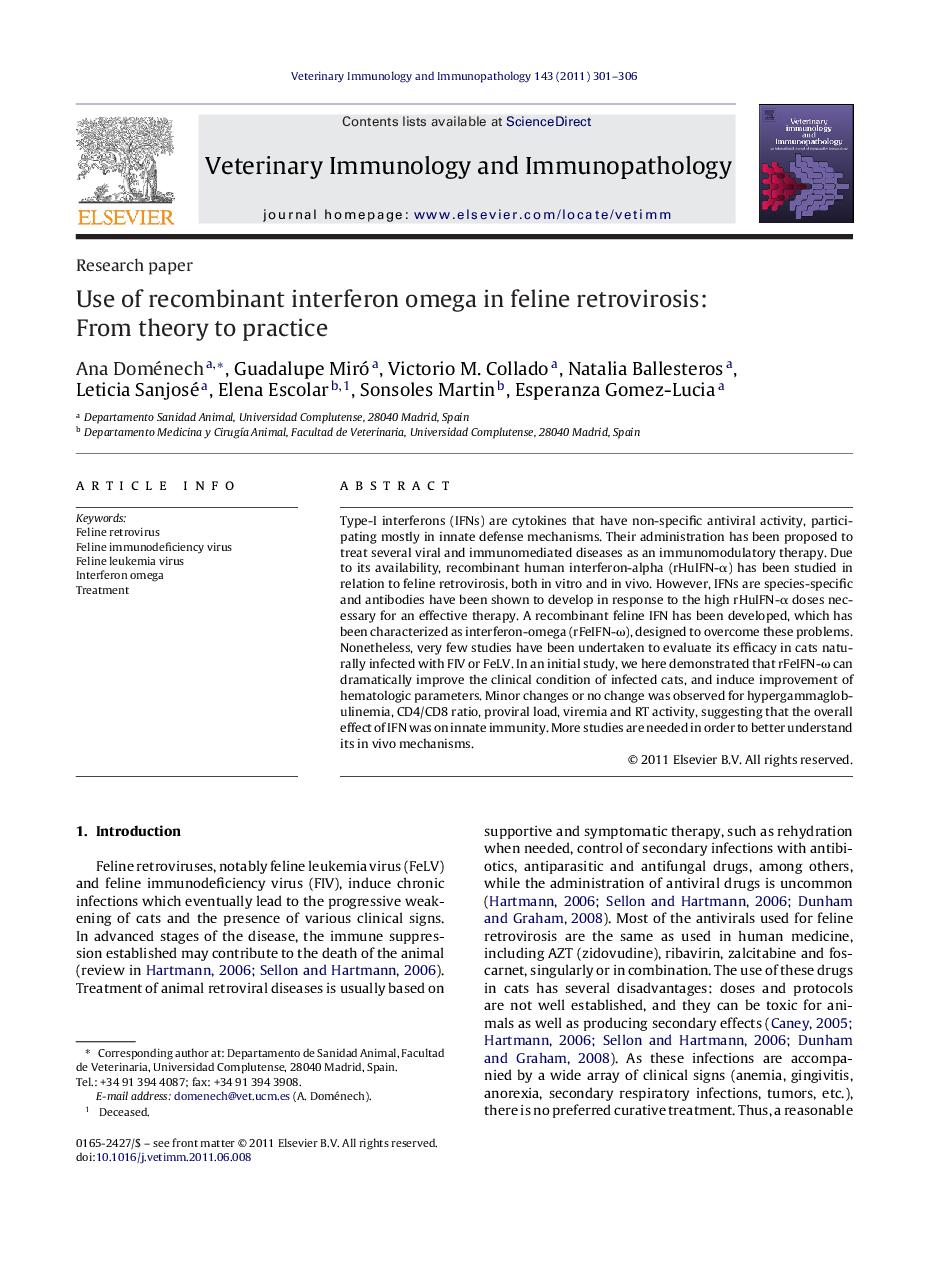| Article ID | Journal | Published Year | Pages | File Type |
|---|---|---|---|---|
| 2462097 | Veterinary Immunology and Immunopathology | 2011 | 6 Pages |
Type-I interferons (IFNs) are cytokines that have non-specific antiviral activity, participating mostly in innate defense mechanisms. Their administration has been proposed to treat several viral and immunomediated diseases as an immunomodulatory therapy. Due to its availability, recombinant human interferon-alpha (rHuIFN-α) has been studied in relation to feline retrovirosis, both in vitro and in vivo. However, IFNs are species-specific and antibodies have been shown to develop in response to the high rHuIFN-α doses necessary for an effective therapy. A recombinant feline IFN has been developed, which has been characterized as interferon-omega (rFeIFN-ω), designed to overcome these problems. Nonetheless, very few studies have been undertaken to evaluate its efficacy in cats naturally infected with FIV or FeLV. In an initial study, we here demonstrated that rFeIFN-ω can dramatically improve the clinical condition of infected cats, and induce improvement of hematologic parameters. Minor changes or no change was observed for hypergammaglobulinemia, CD4/CD8 ratio, proviral load, viremia and RT activity, suggesting that the overall effect of IFN was on innate immunity. More studies are needed in order to better understand its in vivo mechanisms.
